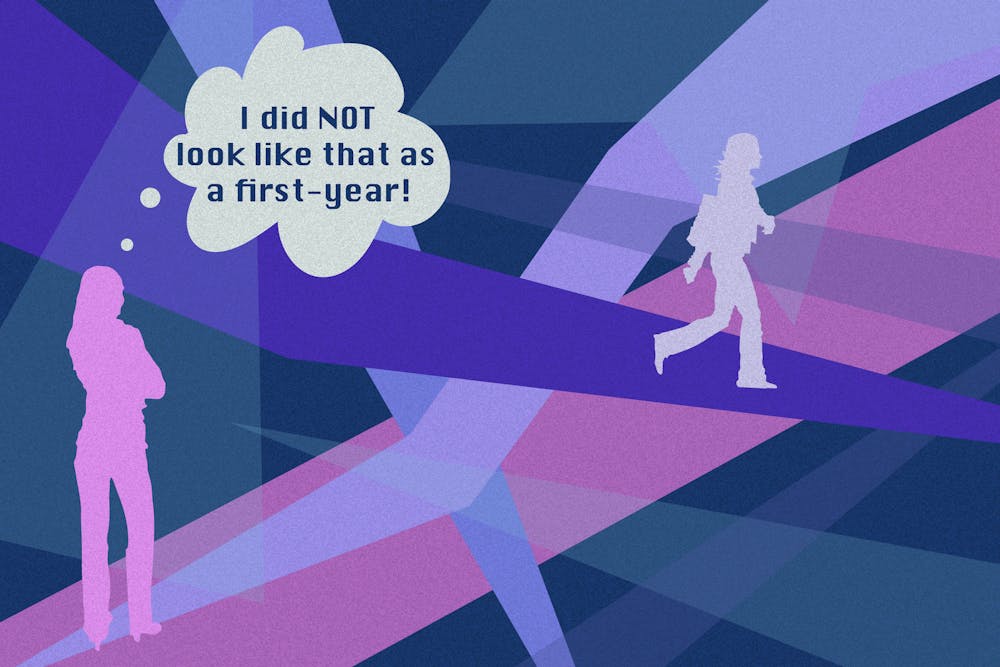It was such a thrill to step back on UNC campus as a sophomore.
The anxieties of the previous year had been all but erased. Proudly marching around my now all-too-familiar campus with a veteran’s confidence, I felt I could do no wrong. I knew exactly which table I preferred in Davis Library, my favorite breakfast days at the dining hall and the fastest walking route to each of my carefully selected classes. The most astounding change was the ease with which I could pick out the new first-years.
Each of them accompanied with a few unmistakable indicators — the fidgeting with the OneCard, the turning around in the middle of the quad, the dreaded Google Maps leading them every which way — I was stunned at how noticeable their presence was.
More importantly, I was stunned at the prospect of ever having looked like that. In the first few days of this semester, I was imbued with the perception that I had been perhaps the least obvious first-year to ever exist on campus. Surely my own Google Maps usage was not as noticeable; surely my own experiences getting lost were not as recognizable to passers-by; surely I had somehow escaped all of the same unmistakable indicators. “Surely,” I thought to myself, “I didn’t look like that when I was a freshman.”
This had the potential to be merely an isolated mindset, but then I realized just how long I’d had these evaluations of myself. I regarded eighth graders the same way upon starting high school, and I regarded high school seniors the same way upon starting college. For my whole life, it appeared, I had been under the impression that I had a uniquely remarkable ability to blend in and progress quickly.
I’d like to think that this phenomenon plagues us all. We are destined with hindsight blindness that leads us to attitudes of arrogance surrounding those who are less experienced than we are — a permanent refusal to admit that were likely just as cringe-worthy.
This arrogance has two potential dangers associated with it: a lack of self-awareness and a lack of empathy.
The first is the lesser of the two, predominantly because the majority of its negative impacts fall solely on ourselves. A lack of self-awareness stalls potential learning and leads to a permanent state of being naively nostalgic. In doing so, we morph into our great-great-grandfathers who sit on wooden chairs and say “What’s wrong with the kids these days? Back when I was a boy…” and so on and so forth.
The second, a lack of empathy, is significantly more damaging — it will not impact us so much as it will impact those around us. Haughty and bitter mindsets regarding the “new kids” will only foster immaturity and selfishness. It is what prevents incoming first-years from feeling comfortable, confident and safe in the idea that Carolina is their new home. It is what prevents mentorships and relationships from being fully developed and realized. On larger fronts, a lack of empathy leads to serious situations involving harassment or discrimination, both of which can be avoided with self-reflection and compassion.




